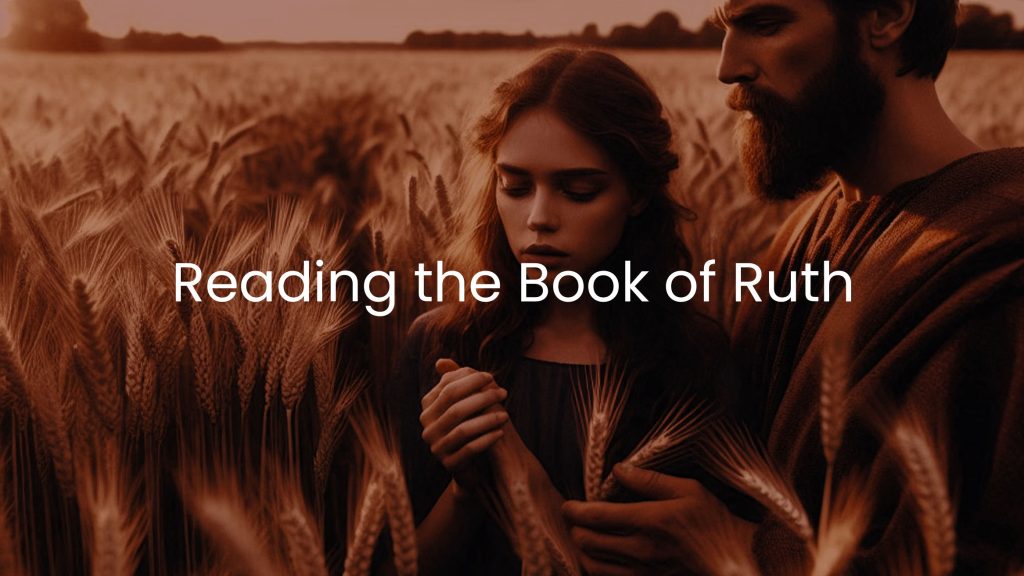|
Getting your Trinity Audio player ready...
|
Elimelech, the husband of Naomi, died, and she was left with her two sons. These took Moabite wives; the name of the one was Orpah, and the name of the other Ruth. They lived there about ten years, and both Mahlon and Chilion died, so that the woman was left without her two sons and her husband (Ruth 1:4-5, ESV).
Rarely in the Book of Ruth does the author mention God, yet God’s providence permeates the book. What begins as the most desperate of circumstances ends with the birth of King David’s grandfather, and then King David’s genealogy culminates in the birth of Christ.
From despair to God’s kindness, ultimately concluding with the birth of our Messiah — a lot packed into four chapters of the Old Testament!
What did Naomi and Ruth deserve such honor?
In chapter one, we find Naomi losing her husband and both sons while residing in a foreign land. Naomi changed her name to “Mara,” which meant that God had dealt severely with her.
Losing a husband and two sons indicated Naomi had lost God’s favor.
When Naomi (Mara) returned to her homeland, rumors would follow, raising questions about what Naomi (Mara) had done to cause her calamity. Realizing this, Naomi (Mara) asked both of her daughters-in-law to leave her and return to their homeland, hopefully to find husbands, children, and blessings.
But Ruth said to Naomi (Mara), “No, I’m not leaving. It wouldn’t be right to leave you in such a desperate situation. Where you go, I will go, and where you lodge, I will lodge. Your people shall be my people, and your God my God” (1:15-17a, OGV).
Truly, one of the great statements of faith in the Bible.
The Book of Ruth reveals the ultimate purposes of God for Naomi (Mara) and Ruth (and for us) — that evil becomes good, and that defeat often brings unimaginable blessing.
In chapter two, we encounter Boaz, an older, wealthy farmer. Ruth, to get food for both Naomi (Mara) and her, gleaned his fields for scraps of grain after his workers had finished harvesting. Boaz, noticing Ruth, tells her to glean only his fields and then tells his harvesters to leave grain behind for her.
Yep, a burgeoning love story!
In chapter three, we find a wise Naomi (Mara) giving Ruth astute advice saying, “Ruth, remove your grieving clothes, wash and anoint yourself, and put on a nice dress. Then go back to the field and when Boaz has eaten and drunk too much wine, wait for him to fall asleep, then uncover his feet and lie down” (3:1-4, OGV).
Yes, a potentially immoral situation for Ruth, but Naomi knew Boaz’s integrity. And Naomi also had thoughtful consideration for a better future for both her and Ruth.
The “laying at the feet” ploy worked as Boaz did not take advantage of Ruth and promised to redeem her as his wife. Again, Naomi (Mara) displays adroit shrewdness by saying to Ruth, “This man will not rest until he settles the matter today!!”
Boaz didn’t rest; Ruth became his wife; they gave birth to Obed (King David’s grandfather), and Naomi’s name of Mara (or “God’s severe dealings”) was erased from history, as we read. . .
The women of the city said to Naomi, “Blessed be the Lord, who has not left you without a redeemer, and may his name be renowned in Israel. He shall be a restorer of life for your daughter-in-law, who is worth more than seven sons, has given birth to him” (4:14-15, ESV).
Ruth to Obed to King David to Jesus to us.
God’s providence!
Read the Book of Ruth in its entirety to increase your faith in the goodness of God!

